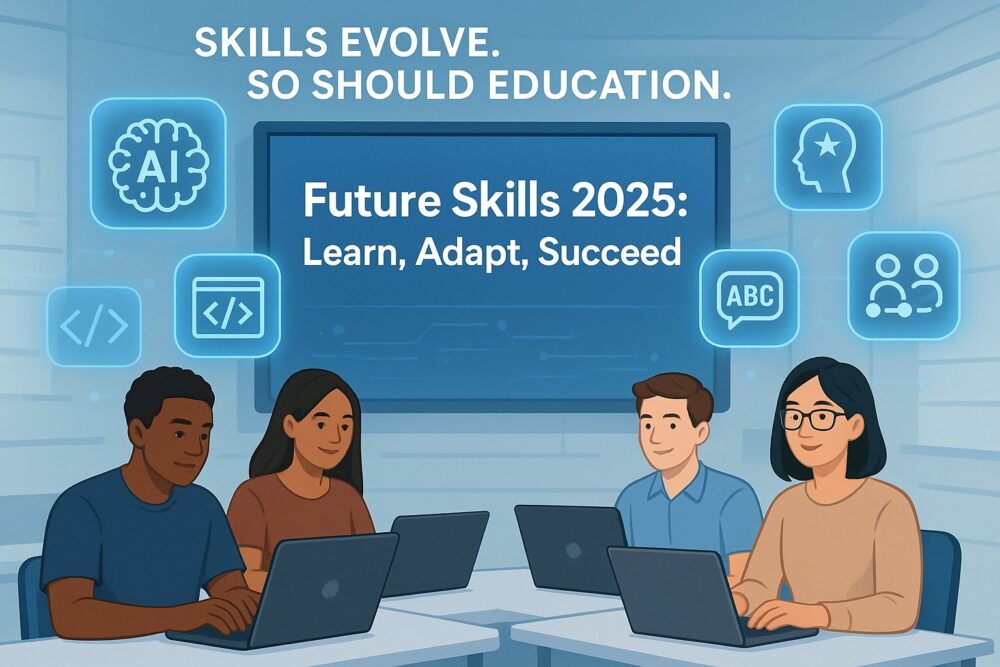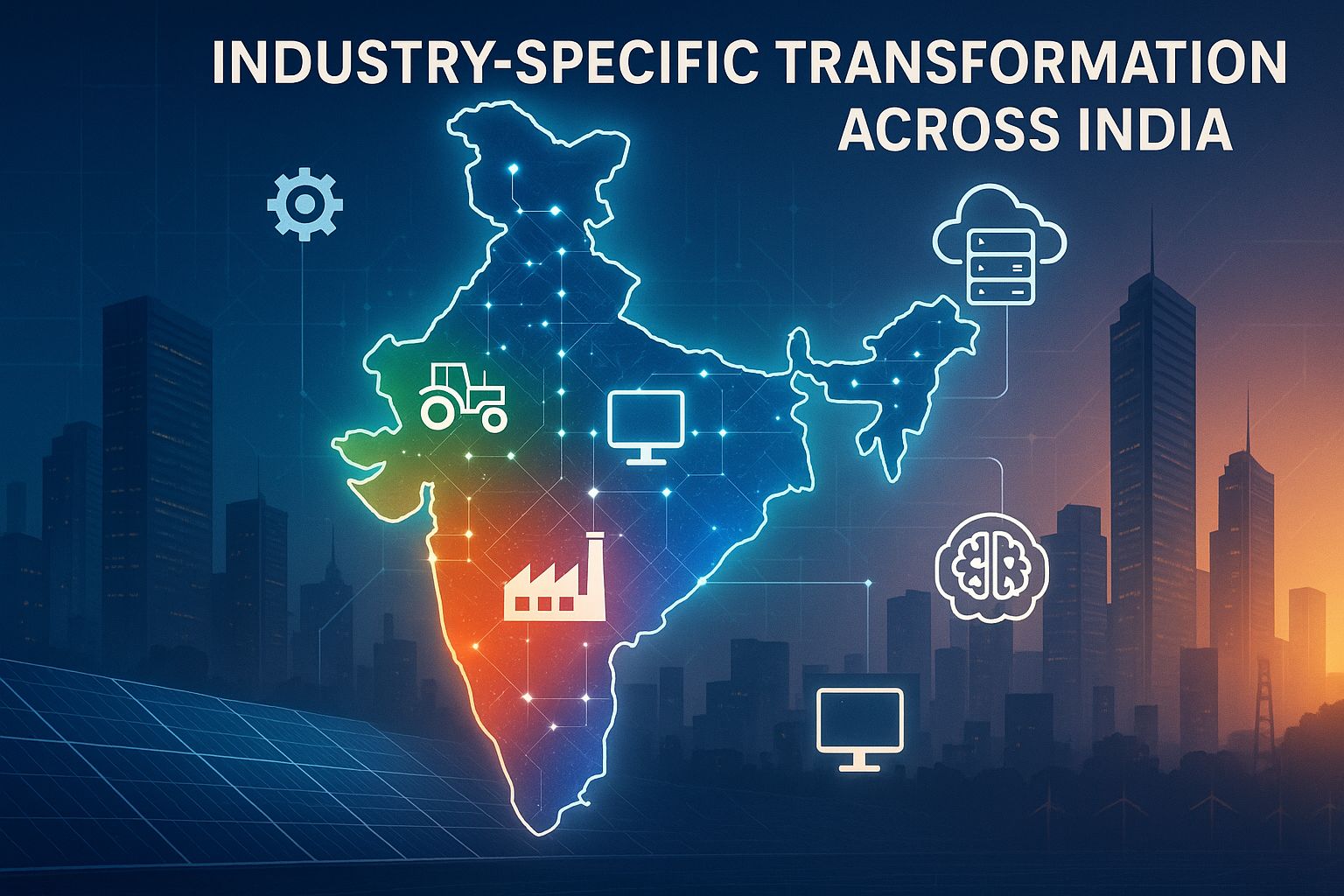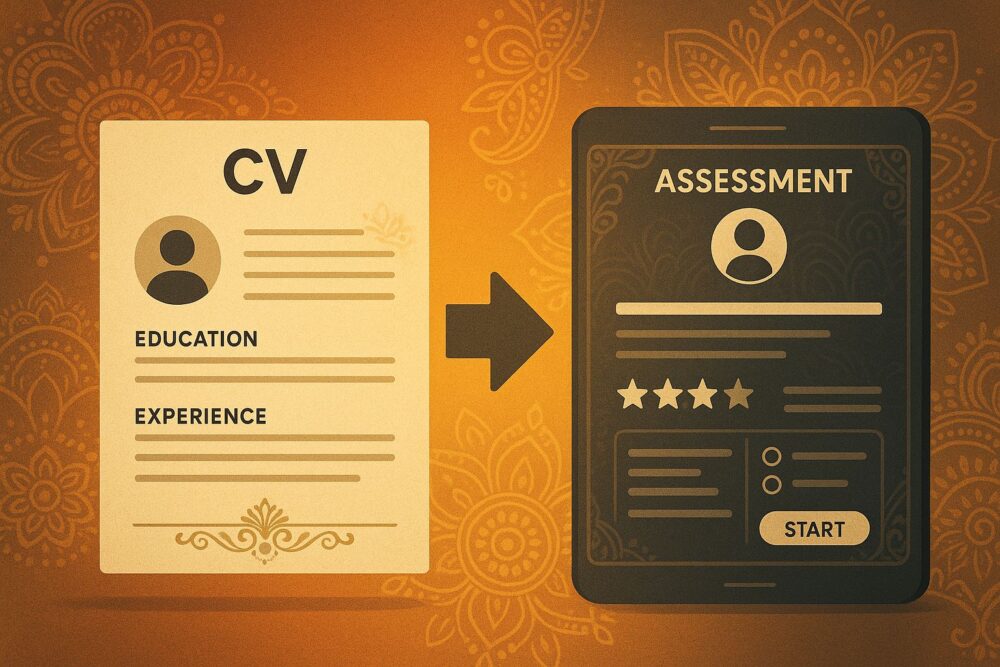India Workforce 2025: India’s workforce landscape is undergoing a revolutionary transformation, positioning the nation as the global talent powerhouse for the digital age. With over 900 million working-age individuals and the world’s largest youth population, India presents unprecedented opportunities and challenges in workforce development, skills enhancement, and career advancement.
The convergence of technological advancement, government initiatives, and demographic advantages creates a unique ecosystem where traditional industries evolve alongside emerging sectors, generating diverse career pathways for professionals across skill levels and educational backgrounds. Understanding these dynamics becomes essential for anyone navigating India’s complex and rapidly changing employment landscape.
From the bustling tech corridors of Bangalore and Hyderabad to the manufacturing hubs of Tamil Nadu and Gujarat, India’s workforce story reflects a nation embracing digital transformation while preserving its industrial strengths and service sector excellence. This evolution shapes not just domestic career opportunities but India’s position in the global talent marketplace.
India Workforce 2025: India’s Workforce Demographics and Economic Context
India Workforce 2025: India’s working-age population stands at over 900 million people, making it the world’s largest workforce. This demographic dividend, combined with increasing educational attainment and digital literacy, positions India uniquely in the global economy. People at work.
Key Workforce Statistics
Educational Achievement Trends:
- Technical education enrollment increased 23% in 2024
- Digital literacy reached 56% among working-age population
- English proficiency rates continue improving across regions
- Professional certification adoption growing rapidly
- Women’s workforce participation slowly but steadily increasing
Employment Distribution:
- Services sector: 32% of total employment
- Agriculture: 45% of employment (declining annually)
- Manufacturing and industry: 23% of employment
- Informal sector: Still accounts for 85% of total employment
- Formal sector growth: 8.2% annually in urban areas
Regional Workforce Variations
India Workforce 2025: India’s vast geography creates diverse employment landscapes, with different regions specializing in various industries and offering distinct career opportunities.
Technology and Services Hubs:
- Bangalore: Software development and IT services
- Hyderabad: Biotechnology and pharmaceutical research
- Pune: Automotive technology and manufacturing
- Chennai: Healthcare technology and automotive
- Delhi NCR: Financial services and government sector
Manufacturing and Industrial Centers:
- Gujarat: Chemicals, textiles, and renewable energy
- Maharashtra: Automotive, pharmaceuticals, and engineering
- Tamil Nadu: Textiles, leather, and automotive components
- Karnataka: Aerospace, defense, and heavy machinery
- Andhra Pradesh: Food processing and aquaculture
High-Growth Career Sectors in 2025

Technology and Digital Services
India Workforce 2025: India’s technology sector continues expanding beyond traditional IT services to encompass artificial intelligence, data analytics, cybersecurity, and digital transformation consulting.
Emerging Tech Opportunities:
- Artificial intelligence and machine learning specialists
- Cloud computing architects and DevOps engineers
- Cybersecurity analysts and ethical hackers
- Data scientists and business intelligence experts
- Blockchain developers and cryptocurrency specialists
Salary Ranges (Annual):
- Entry-level: ₹4-8 lakhs
- Mid-level: ₹8-20 lakhs
- Senior professionals: ₹20-50 lakhs
- Leadership roles: ₹50 lakhs+
Healthcare and Biotechnology
India Workforce 2025: India’s healthcare sector expansion, driven by demographic changes and medical tourism growth, creates diverse opportunities from clinical practice to healthcare technology and pharmaceutical research.
Healthcare Growth Areas:
- Telemedicine and digital health platforms
- Medical device manufacturing and innovation
- Pharmaceutical research and drug discovery
- Healthcare data analytics and informatics
- Medical tourism and specialized treatment centers
Sector Advantages:
- Government healthcare initiatives and insurance expansion
- Aging population driving healthcare service demand
- Medical tourism bringing international patients
- Pharmaceutical manufacturing for global markets
- Traditional medicine integration with modern healthcare
Renewable Energy and Sustainability
India Workforce 2025: India’s commitment to renewable energy and environmental sustainability creates career opportunities in green technology, sustainable manufacturing, and environmental consulting.
Green Career Opportunities:
- Solar and wind energy project development
- Energy efficiency and conservation consulting
- Environmental impact assessment specialists
- Sustainable manufacturing and green supply chain
- Electric vehicle technology and infrastructure
Government Support:
- National Solar Mission and renewable energy targets
- Green building certification and sustainable construction
- Electric vehicle adoption incentives and infrastructure
- Waste management and circular economy initiatives
- Carbon credit and environmental trading mechanisms
Manufacturing and Industry 4.0
India Workforce 2025: India’s manufacturing sector transformation through automation, digitization, and advanced materials creates opportunities for professionals with technical skills and industry knowledge.
Manufacturing Innovation Areas:
- Industrial automation and robotics
- Additive manufacturing and 3D printing
- Internet of Things (IoT) and smart factories
- Supply chain optimization and logistics technology
- Quality management and process improvement
Skills Development and Educational Trends

Government Initiatives and Programs
India Workforce 2025: The Indian government’s skill development initiatives create structured pathways for workforce enhancement across industries and skill levels. India skills report 2025.
Key Government Programs:
- Skill India Mission targeting 40 crore people
- Pradhan Mantri Kaushal Vikas Yojana (PMKVY)
- Recognition of Prior Learning (RPL) certification
- Apprenticeship programs with industry partnerships
- Digital India initiatives for technology skills
Industry-Academia Collaboration
India Workforce 2025: Leading companies partner with educational institutions to create industry-relevant curricula, internship programs, and job placement opportunities. Workforce in india.
Collaboration Models:
- Corporate-sponsored training centers and laboratories
- Industry mentorship and guest faculty programs
- Real-world project assignments and case studies
- Internship programs leading to full-time employment
- Continuing education and professional development courses
Online Learning and Certification
India Workforce 2025: Digital learning platforms democratize access to high-quality education and professional certification, enabling career advancement regardless of geographical location.
Popular Learning Platforms:
- SWAYAM government online education platform
- Industry-specific certification programs (Google, Microsoft, AWS)
- Professional development MOOCs and online universities
- Skill-based learning platforms (Coursera, Udemy, edX)
- Corporate learning management systems and internal training
Regional Employment Opportunities and Trends
Metropolitan Employment Centers
India Workforce 2025: India’s major cities continue attracting talent and investment, creating concentrated employment opportunities with higher compensation levels and career advancement prospects.
Delhi NCR Opportunities:
- Government sector and public policy roles
- Financial services and banking headquarters
- Multinational corporation regional offices
- Diplomatic services and international organizations
- Media, journalism, and communications
Mumbai Financial Hub:
- Investment banking and capital markets
- Insurance and mutual fund management
- Entertainment industry and media production
- International trade and logistics
- Real estate development and construction
Bangalore Technology Capital:
- Software development and IT services
- Startup ecosystem and venture capital
- Research and development centers
- Aerospace and defense technology
- Biotechnology and life sciences
Tier-2 and Tier-3 City Growth
India Workforce 2025: Smaller cities increasingly attract investment and create employment opportunities, offering better work-life balance and lower living costs while providing career growth potential.
Emerging City Advantages:
- Lower operational costs attracting company expansions
- Government incentives for industrial development
- Reduced competition for talent and faster career progression
- Better quality of life and community connections
- Growing entrepreneurship and business opportunities
Rural and Agricultural Transformation
India Workforce 2025: Agricultural modernization and rural development programs create new career categories that blend traditional knowledge with modern technology and business practices.
Rural Career Opportunities:
- Agricultural technology and precision farming
- Rural marketing and distribution networks
- Microfinance and rural banking services
- Renewable energy project development
- Rural healthcare and telemedicine services
Entrepreneurship and Startup Ecosystem
Startup Growth and Opportunities
India Workforce 2025: India’s startup ecosystem ranks among the world’s largest, creating opportunities for entrepreneurs, early-stage professionals, and investors across diverse sectors.
Startup Sector Growth:
- Fintech and digital payment solutions
- E-commerce and online marketplace platforms
- Educational technology and online learning
- Healthcare technology and telemedicine
- Agricultural technology and food processing
Government Support for Entrepreneurship
India Workforce 2025: Government initiatives support startup creation through funding, incubation, and regulatory facilitation, making entrepreneurship more accessible across the country.
Startup Support Programs:
- Startup India initiative with tax benefits and funding
- Atal Innovation Mission for innovation and entrepreneurship
- Stand-up India for women and SC/ST entrepreneurs
- Mudra loans for micro and small enterprise financing
- Incubation centers and technology business incubators
Investment and Funding Landscape
India Workforce 2025: Growing venture capital and private equity investment provides funding opportunities for startups while creating career opportunities in investment banking, due diligence, and startup advisory services.
Funding Ecosystem:
- Domestic and international venture capital firms
- Angel investor networks and startup mentorship
- Government funding and grant programs
- Crowdfunding platforms and retail investor participation
- Corporate venture capital and strategic partnerships
Workplace Culture and Professional Development

Evolving Workplace Dynamics
India Workforce 2025: Indian workplace culture adapts to global trends while maintaining cultural values, creating environments that balance professional growth with personal fulfillment.
Modern Workplace Trends:
- Flexible working arrangements and remote work acceptance
- Emphasis on work-life balance and employee wellbeing
- Diversity and inclusion initiatives across organizations
- Performance-based compensation and career advancement
- Continuous learning and skill development support
Professional Networking and Career Advancement
India Workforce 2025: Building professional networks remains crucial for career success in India, with both traditional relationship-building and modern networking platforms playing important roles.
Networking Strategies:
- Industry association membership and active participation
- Alumni networks and educational institution connections
- Professional conferences and industry event attendance
- Social media professional networking (LinkedIn, Twitter)
- Mentorship relationships and knowledge sharing
Cultural Considerations for International Professionals
India Workforce 2025: Foreign professionals working in India benefit from understanding local business culture, communication styles, and relationship-building approaches. Insights to better understand.
Cultural Success Factors:
- Respect for hierarchy and experience-based authority
- Importance of personal relationships in business dealings
- Appreciation for cultural diversity and regional differences
- Understanding of family obligations and festival celebrations
- Balance between modern business practices and traditional values
Future Workforce Trends and Predictions
Technology Integration and Automation
India Workforce 2025: India’s workforce adapts to increasing automation and artificial intelligence integration, requiring continuous skill upgrades and career pivoting capabilities.
Automation Impact Areas:
- Routine task automation in services and manufacturing
- AI-powered decision support systems across industries
- Robotic process automation in business operations
- Predictive analytics and data-driven decision making
- Human-machine collaboration in complex processes
Remote Work and Global Integration
The normalization of remote work enables Indian professionals to access global opportunities while contributing to international projects and companies.
Global Integration Benefits:
- Access to international compensation levels and career paths
- Exposure to global business practices and professional standards
- Contribution to worldwide projects and innovation initiatives
- Cultural exchange and international relationship building
- Cost arbitrage advantages for both professionals and employers
Sustainable Development and Green Jobs
India’s commitment to environmental sustainability and climate change mitigation creates new job categories focused on green technology, sustainable practices, and environmental protection.
Green Job Categories:
- Renewable energy project development and management
- Environmental compliance and sustainability consulting
- Green building design and energy-efficient construction
- Waste management and circular economy implementation
- Climate change adaptation and mitigation strategies
Compensation Trends and Career Planning
Salary Growth Patterns Across Sectors
Indian salary levels reflect economic growth, skill demand, and regional cost variations, with certain sectors offering accelerated compensation growth for skilled professionals.
Sector-wise Growth Rates:
- Technology and IT services: 10-15% annual growth
- Financial services and banking: 8-12% annual growth
- Healthcare and pharmaceuticals: 9-13% annual growth
- Manufacturing and engineering: 7-10% annual growth
- Government and public sector: 5-8% annual growth
Total Compensation and Benefits Evolution
Modern Indian employers offer comprehensive benefits packages that extend beyond salary to include health coverage, professional development, and work-life balance support.
Standard Benefits Evolution:
- Comprehensive health insurance for employees and families
- Performance bonuses and profit-sharing arrangements
- Professional development and education reimbursement
- Flexible working arrangements and remote work options
- Employee stock ownership plans and long-term incentives
Career Planning and Financial Security
Long-term career success requires strategic planning that balances immediate opportunities with future market trends and personal development goals.
Career Planning Essentials:
- Continuous skill development and industry knowledge updates
- Financial planning and investment for long-term security
- Professional network building and relationship maintenance
- Industry trend monitoring and career pivot preparation
- Work-life balance optimization for sustainable success
Conclusion: India’s Workforce Advantage
India Workforce 2025: India’s workforce transformation in 2025 represents a convergence of demographic advantages, technological capabilities, and economic opportunities that position the nation as a global talent leader. The combination of traditional strengths in services and manufacturing with emerging capabilities in technology and innovation creates diverse career pathways for professionals across skill levels.
Success in India’s evolving job market requires embracing continuous learning, cultural adaptability, and technological proficiency while maintaining the relationship-building skills that remain central to Indian business culture. The professionals who thrive are those who combine technical expertise with cultural intelligence, global awareness with local market understanding.
India’s workforce future remains exceptionally bright, with opportunities spanning traditional industries undergoing digital transformation and emerging sectors creating entirely new career categories. For professionals ready to engage with the world’s most dynamic and diverse workforce, India offers not just employment, but the opportunity to shape the future of work in the world’s most populous nation.
The next decade will see India’s workforce influence extending far beyond domestic boundaries, as Indian professionals and Indian-trained talent contribute to global economic growth while driving innovation and development within the subcontinent itself.



 Different sectors throughout India are implementing assessment strategies tailored to their unique requirements and market dynamics.
Different sectors throughout India are implementing assessment strategies tailored to their unique requirements and market dynamics.